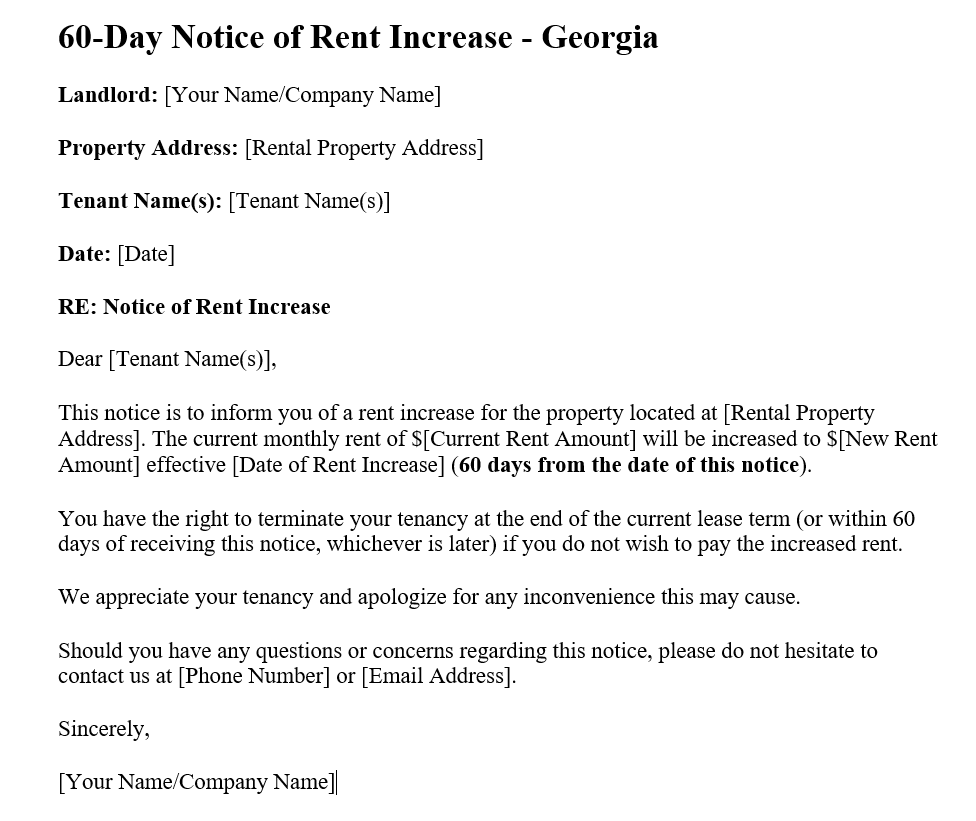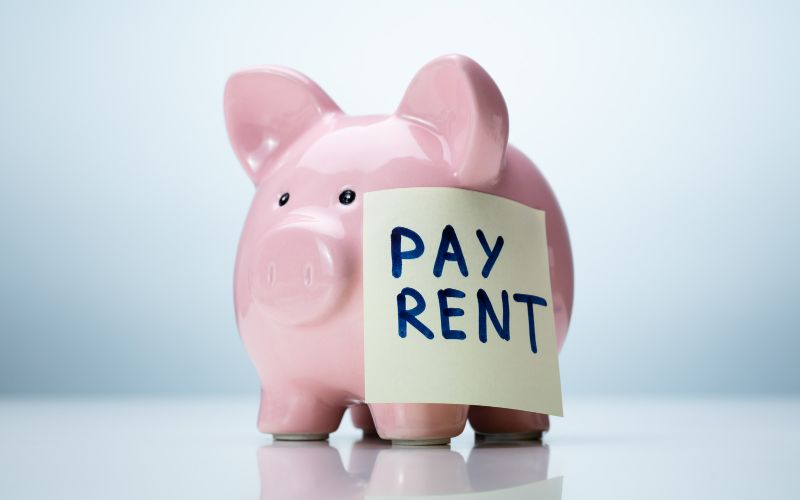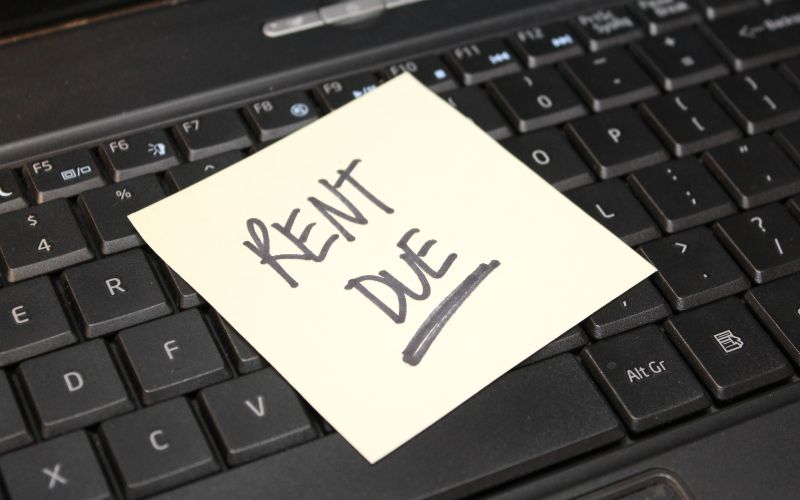Rent is not going up as quickly as it was, but the prices are still on the rise. An 11 Alive viewer contacted our Verify team when she saw a sudden red flag.
Jerry Carnes is here to explain what landlords can and cannot do when that lease ends and it's time to renew it.
Rent's a big topic. Here's one of the reasons why: the viewer who contacted us lives in an apartment that's part of a government-subsidized affordable housing program.
When she saw how much her rent would increase this summer, she didn't see anything affordable about it. So we started digging to verify if there are limits on how much a landlord can increase your rent.
Imagine the shock when a new lease arrived informing a metro Atlanta woman that her rent was increasing from $1,170 to $1,219.00 a month.
That's an increase of more than 4%. That renter was surprised it could happen anywhere, especially in an apartment that's part of an affordable housing program. She asked us to verify if landlords can increase rent so dramatically.
Our sources are Georgia Law, the Georgia Department of Community Affairs, and Doctor Taylor Shelton with Georgia State University's Urban Studies Institute.
Georgia law is pretty clear. It says that local governments here cannot regulate the amount of rent charged by a landlord. But you might be able to bargain with your landlord on an individual basis.
But in reality, there are no legal limits on how much rent they could increase.
Doctor Shelton tells us the only restriction is when a landlord can increase your rent. Typically, they can't do it in the middle of a lease. The Georgia legislature has considered changing the law to limit rent increases.
They, unfortunately, didn't get very much traction. And it's a very uphill battle to climb to do that in a state that's so property rights friendly.
The Department of Community Affairs tells us there are some limits when it comes to federally subsidized affordable housing. There are maximum amounts a landlord can charge that can be based on a renter's income or the median income of a county as long as it doesn't exceed the maximum.
A landlord can increase the rent as much as they want from lease to lease. So we can verify it's true landlords in Georgia are generally free to increase your rent 10% or more when you sign a new lease.
If your apartment is part of the Low Income Housing Tax Credit Program in Georgia, and that's common, landlords have to give renters at least four months' notice if they're raising the rent by 5% or more. Generally, landlords can wait until the day they offer you a new lease to notify you of any rent increase.
Rent prices in Georgia have been rising steadily over the last couple of years. And while they may appear to have stabilized in 2024, Zillow.com still reported a slight increase of $10 from April to May 2024.
But with the increments, it begs the question – how much exactly can a landlord raise rent in Georgia? The following are answers to commonly asked questions regarding rent rules in Georgia.
How much can a landlord raise rent in Georgia?
According to GA Code Title 44 Chapter 7, Georgia doesn’t have any rent control laws in place. Also, state law prohibits local jurisdictions from creating their own rent control laws.
Resultantly, Georgia landlords can raise rent by whatever amount of rent and as often as they choose.
That said, there are certain things a landlord cannot do when it comes to raising rent in Georgia.
1. The landlord cannot raise rent during the lease term.
As a landlord, you must abide by all terms of the lease agreement. And you cannot make changes to the contractual agreement until it expires, unless the lease itself allows for such a change.
To raise the rent, you’ll need to wait until the current term ends. This applies to both periodic and fixed-term leases.
2. The landlord cannot raise rent out of discrimination.
The Fair Housing Act is clear on this! As a landlord, you must treat your tenants equally and fairly regardless of certain protected classes.
Specifically, you cannot raise rent on a tenant based on their race, color, religion, sex, nationality, familial status, or disability.
3. The landlord cannot raise rent in retaliation.
Landlord retaliation is illegal in Georgia. These are illegal actions that are solely meant to punish a tenant for exercising a legal right. Examples of such legal rights include the tenant reporting unlivable conditions to authorities, or forming a union with other tenants to advocate for their rights.
As a landlord, you cannot then retaliate against such a tenant by raising rent, threatening an eviction, or withholding repairs.
4. The landlord must notify the tenant before raising rent.
You must also notify the tenant before raising rent. Where a tenant lives without a lease or their lease has expired, the landlord must notify the tenant 60 days in advance before raising their rent.
Below is a free rent increase template you can use to notify your tenant of a rent increase.

Can landlords raise rent in federally subsidized affordable housing?
This will depend on the particular federal subsidy program. There are two main types to consider.
One of the programs is the Low-Income Housing Tax Credit (LIHTC). This program offers tax credits for developers who build affordable housing units. Landlords can raise rent by 5% or double the percentage change in national median income, whichever is higher.
The other type of federally subsidized affordable housing includes programs like Housing Choice Vouchers. The rent increase is capped at a percentage of the tenant’s income, usually 30 percent.
Conclusion
So, how much can a landlord raise rent in Georgia? By as much as they would like and as often as they would wish! That said, make sure to keep the rent amount reasonable to ensure your property remains competitive in the rental market.
Also, note that any rent raise must be up to par with all relevant laws. Including, meeting the notice requirements, fair housing rules, and landlord retaliation laws.
Sources: GA Code Title 44 Chapter 7, Georgia Landlord Tenant Handbook
Last Updated on May 31, 2024 by Kelvin Nielsen

I am a real estate attorney with over 11 years of experience in tenant eviction cases. My mission here at LTRC is to help answer your commonly asked questions on everything regarding real estate laws, especially on eviction matters.
I’m a member of the following professional organizations: Attorneys’ Real Estate Councils of Florida (ARECs), Florida Bar Real Property, Probate & Trust Law Section, American College of Real Estate Lawyers (ACREL), and the Florida Association of Community Managers (FACM).








